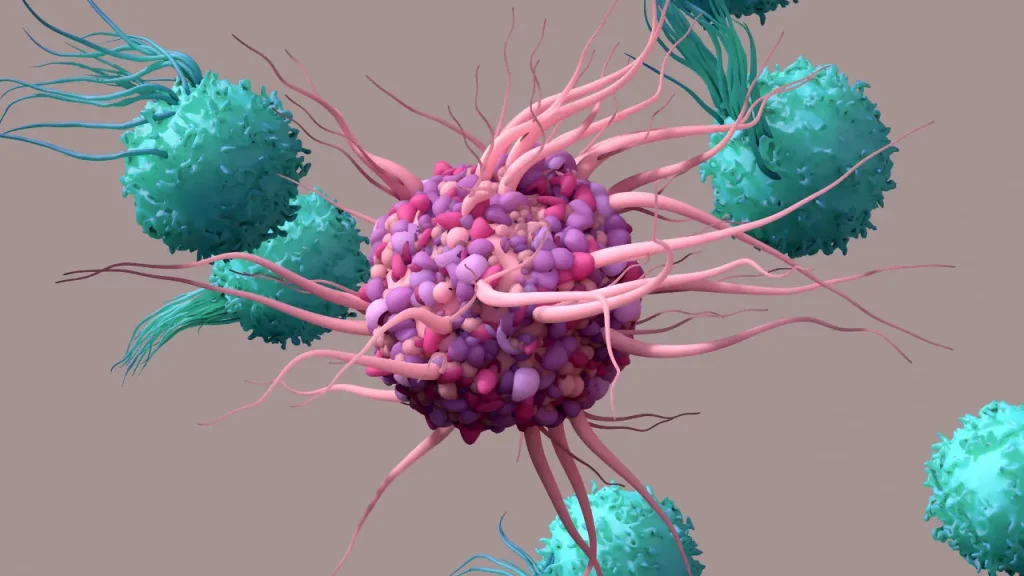Bidens pilosa, often known as burr marigold, is a plant species that may be found all across tropical and subtropical areas. The scientific world has taken notice of this herbaceous perennial due to the wide variety of possible health advantages provided by its abundant phytochemical ingredients. The best dose, potential adverse effects, and potential drug interactions must all be understood, just as with any nutritional supplement. This in-depth analysis seeks to outline these elements in order to shed light on the proper usage of Burr Marigold as a dietary supplement.
You May Also Like:
Should You Try CBD for Focus? Here Are the Facts.
CBD for Concentration: The Productivity Hack for Energy and Focus
Burr Marigold: Benefits, Dosage, Side Effects, Drug Interactions, and Other Important Information is an original (NootropicsPlanet) article.
Nature of Burr Marigold
A perennial herbaceous plant with the common name “burr marigold,” Bidens pilosa, may be found all over the globe in tropical and subtropical climates. Small white or yellow blooms, green foliage, and thin stems are the plant’s distinguishing features. The term “burr” for the plant relates to its barbed seeds or fruits that attach to people’s clothes and the fur of animals, aiding in its widespread dispersal. The leaves, flowers, seeds, and roots of the plant have all historically been utilized for medical reasons.
Health Benefits of Burr Marigold
The synergistic effects of Burr Marigold’s bioactive components are thought to be the cause of its health advantages. By scavenging damaging free radicals in the body, flavonoids and phenolic compounds’ antioxidant capabilities lessen oxidative stress. They therefore contribute to the prevention of chronic illnesses including cancer, diabetes, and cardiovascular disease.
Additionally, by preventing the synthesis of pro-inflammatory cytokines, these chemicals help the plant’s anti-inflammatory actions and lessen the severity of diseases linked to inflammation.
Additionally, burr marigold has antiviral and antibacterial properties. Staphylococcus aureus and Escherichia coli are only a few of the harmful bacteria that the plant’s essential oils have shown to be effective against. The flavonoids in burr marigold have also been found in experiments to be able to prevent the reproduction of several viruses, including as the herpes simplex virus and the dengue virus.

Chemical Constituents of Burr Marigold
Burr Marigold has a wide range of therapeutic benefits because of its varied chemical makeup. It is abundant in polysaccharides, polyacetylenes, and flavonoids. The plant also contains phenolic substances such luteolin, caffeic acid, and chlorogenic acid as well as essential oils. The antioxidant, anti-inflammatory, antibacterial, and anti-allergic effects of the plant are mostly attributed to these bioactive substances.
Physiological Mechanisms of Action of Burr Marigold
Burr Marigold’s abundant supply of bioactive chemicals and their physiological interactions with the human body are chiefly responsible for its positive health benefits. The main mechanisms of action are as follows:
- Antioxidant Qualities: Burr Marigold contains powerful antioxidants in the form of flavonoids and phenolic components. These antioxidants prevent cellular damage and lower the risk of chronic illnesses by neutralizing reactive oxygen species (free radicals), which are the main cause of oxidative stress.
- Anti-inflammatory Mechanism: Tumor necrosis factor-alpha (TNF-alpha) and interleukins are two examples of pro-inflammatory cytokines that Burr Marigold’s bioactive components have the capacity to downregulate. The symptoms of diseases linked to inflammation may be reduced by this inhibitory impact.
- Antibacterial and antiviral Mechanisms: Burr Marigold’s antibacterial activities are due to its essential oils, which cause bacterial cell lysis by compromising the integrity of their cell membranes. On the other hand, the plant’s flavonoids, which may prevent viral reproduction, are what give it its antiviral effect.
- Immunomodulatory Functions: The Burr Marigold contains polysaccharides that have immunomodulatory effects. By promoting the activity of macrophages and other immune cells, these substances may improve the body’s immunological response, strengthening the body’s protection against infections.
These physiological modes of action highlight Burr Marigold’s medicinal potential. However, further clinical studies are required to create consistent dose protocols and confirm these benefits in human populations.

Optimal Dosage of Burr Marigold
Burr Marigold’s phytochemical concentration varies according on the growth circumstances and extraction technique, making it difficult to determine the ideal dose. The dose for adults, however, typically varies from 1 to 3 grams of dry herb per day, according to the current clinical research. It is crucial to remember that these are just general recommendations, and that each person’s dose will differ based on their unique health situation and general health. As a result, it is advised to speak with a healthcare provider before beginning Burr Marigold supplementation.
Side Effects of Burr Marigold
Burr Marigold may have adverse effects if used in excess or incorrectly, just like any other dietary supplement. Mild gastrointestinal symptoms such as nausea, vomiting, or diarrhea might occur in some people.
It is also important to keep in mind that Burr Marigold shouldn’t be consumed by those who have a known allergy to members of the Asteraceae family, which include species like sunflowers and daisies.

Potential Interactions with Burr Marigold
When using Burr Marigold along with certain drugs, care should be taken to avoid possible interactions. The pharmacokinetics of other medications may be impacted by its bioactive components, possibly changing the course of the therapeutic process.
For instance, Burr Marigold may interact with anticoagulant medications like warfarin, increasing the risk of bleeding, owing to its possible anticoagulant properties. As certain of its elements may slow down the pace at which the liver breaks down these medicines, it may also interact with pharmaceuticals that are metabolized by the liver.
Best Responsible Uses of Burr Marigold
Given its many health advantages, Burr Marigold may be utilized sensibly in a variety of contexts. Some of the finest ways to utilize this plant are as follows:
- Antioxidant Supplementation: Burr Marigold is a powerful antioxidant thanks to its high flavonoid and phenolic content. Consuming it regularly at the proper dose may help the body fight off dangerous free radicals and maybe stave off chronic illnesses.
- Anti-inflammatory Aid: Disorders linked to inflammation may be treated with Burr Marigold’s anti-inflammatory characteristics. Its bioactive ingredients may reduce the synthesis of pro-inflammatory cytokines, alleviating symptoms of inflammatory bowel illness and arthritis.
- Antibacterial and Antiviral Therapy: Burr Marigold is an effective supplementary therapy for the treatment of bacterial and viral illnesses because of its antibacterial and antiviral characteristics. It should be used under the guidance of a healthcare practitioner and should not be used instead of prescription pharmaceuticals.
- Food Supplement: Burr Marigold may promote general health when used as a food supplement. Among other advantages, its bioactive components support immunological function, blood sugar management, and heart health.
Despite these encouraging applications, it’s important to keep in mind that each person’s health requirements and tolerance will affect how well Burr Marigold works for them. To ensure safety and effectiveness, always seek medical advice before beginning a new supplement regimen. To ensure the Burr Marigold’s quality and purity, it’s also crucial to get it from reliable vendors.

Burr Marigold:
Conclusion
Burr Marigold, also known as Bidens pilosa, is a versatile botanical wonder with potential health benefits spanning from its antioxidative and anti-inflammatory properties to its antibacterial and antiviral abilities.
Finding the right dosage can be a puzzle, but cautious experimentation is the way to go in finding the right amount to be effective. And as always, consulting healthcare provider is a wise step in pinpointing the ideal dosage amount.
Remember to be cautious of potential side effects and drug interactions, and always opt for reputable sources for this promising dietary supplement. In your quest for better health, Burr Marigold might just be the trick to curbing malignant manifestations in your body.
References:
- Cytokines, Inflammation and Pain. Retrieved from: https://www.ncbi.nlm.nih.gov/pmc/articles/PMC2785020/#:~:text=Proinflammatory%20cytokines%20are%20produced%20predominantly,the%20process%20of%20pathological%20pain.
- TRIFID BUR-MARIGOLD. Retrieved from: https://www.agfonds.lv/herbs/herbs-s-t/trifid-bur-marigold-bidens-tripartita/#:~:text=The%20extract%20has%20pronounced%20antibacterial,carotene%2C%20lutein%2C%20ascorbic%20acid.
- Warfarin. Retrieved from: https://www.ncbi.nlm.nih.gov/books/NBK470313/#:~:text=Warfarin%20is%20an%20oral%20anticoagulant,%5D%5B2%5D%5B1%5D
Important Note: The information contained in this article is for general informational purposes only, and should not be construed as health or medical advice, nor is it intended to diagnose, prevent, treat, or cure any disease or health condition. Before embarking on any diet, fitness regimen, or program of nutritional supplementation, it is advisable to consult your healthcare professional in order to determine its safety and probable efficacy in terms of your state of health.
Regarding Nutritional Supplements Or Other Non-Prescription Health Products: If any nutritional supplements or other non-prescription health products are mentioned in the foregoing article, any claims or statements made about them have not been evaluated by the U.S. Food and Drug Administration, and such nutritional supplements or other health products are not intended to diagnose, treat, cure, or prevent any disease.


